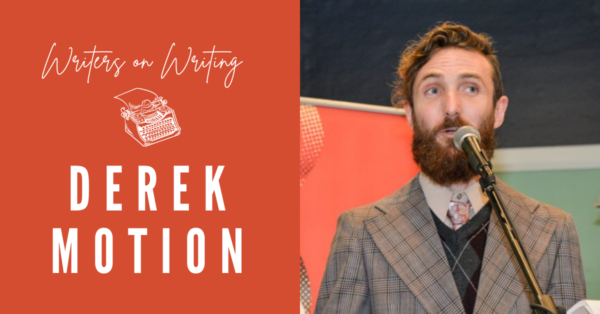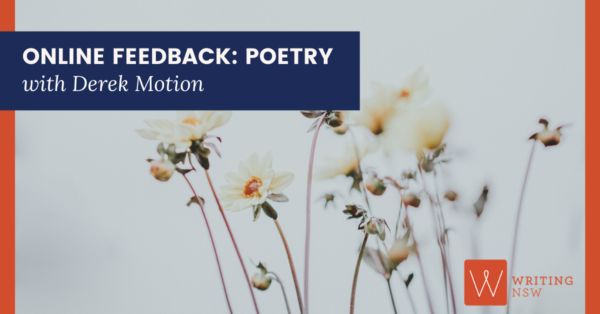
How has receiving feedback on your work developed your writing practice?
Receiving good feedback has been essential to my development as a writer, especially when first beginning to write poetry. I’ve been lucky enough to have some good teachers at uni for creative writing subjects and also to have been involved in many workshops with the Booranga Writers’ Centre (where I currently work as Business Manager). I think the most important way feedback has developed my work is that it has given me a sense of how a diverse range of readers interpret my
poems. For me writing poetry has always been a fairly personal act, and never been about editing for opacity and making a work easy-to-understand, but sometimes there are ideas and themes that I definitely want a reader to understand. Receiving feedback has often made me realise that something I want to be present in the poem is too hidden, and that changes could make things a little clearer. As a writer you often get so close to a poem that you end up just assuming that its themes, ideas and images are clear and vibrant.
What’s the best way to give someone constructive criticism?
I think constructive criticism needs to be more than a simple initial emotional reaction. It should be presented as crafting options, new possibilities: You might want to consider trying X or Y? It means that even if the poet rejects the suggested advice they get a different perspective and maybe have something new in the toolkit for other poems. In this way, you can avoid the simplistic feedback of ‘I don’t like this’ or ‘I love this’.
What poetry collections are on your to-read pile at the moment?
Evelyn Araluen’s ‘Dropbear’ (I’ve had this for a while and have been meaning to get into it) also Benjamine Dodds’ ‘Airplane Baby Banana Blanket’ (he’s going to be a writer-in-residence here in Wagga in a few months). I think sensory imagery is one of the most important aspects of poetry so I also try to remind myself to get out and walk along the river as much as possible, and get to the gallery a lot, because it’s not only poetry that influences poetry.
*
Derek Motion is a poet and artist currently living on Wiradjuri Country, Wagga Wagga, NSW. He holds a PhD in creative writing from CSU; was winner of the 2009 Overland Judith Wright Poetry Prize; and has been a NSW state finalist in the National Poetry slam on two occasions. His most recent full-length poetry collection The Only White Landscape was published through Cordite books.
Join Derek for Online Feedback: Poetry, Monday 7 February to Friday 24 June 2022. Enrol here >>

If you want to be the first to read great advice from our incredible tutors, subscribe to our weekly e-newsletter Newsbite.
More from Writing NSW
Check out our full range of in-person writing courses in Sydney, our online writing courses and our feedback programs to see how we can help you on your writing journey. Find out about our grants and prizes, as well as writing groups across NSW, and sign up to our weekly newsletter for writing events, opportunities and giveaways.
